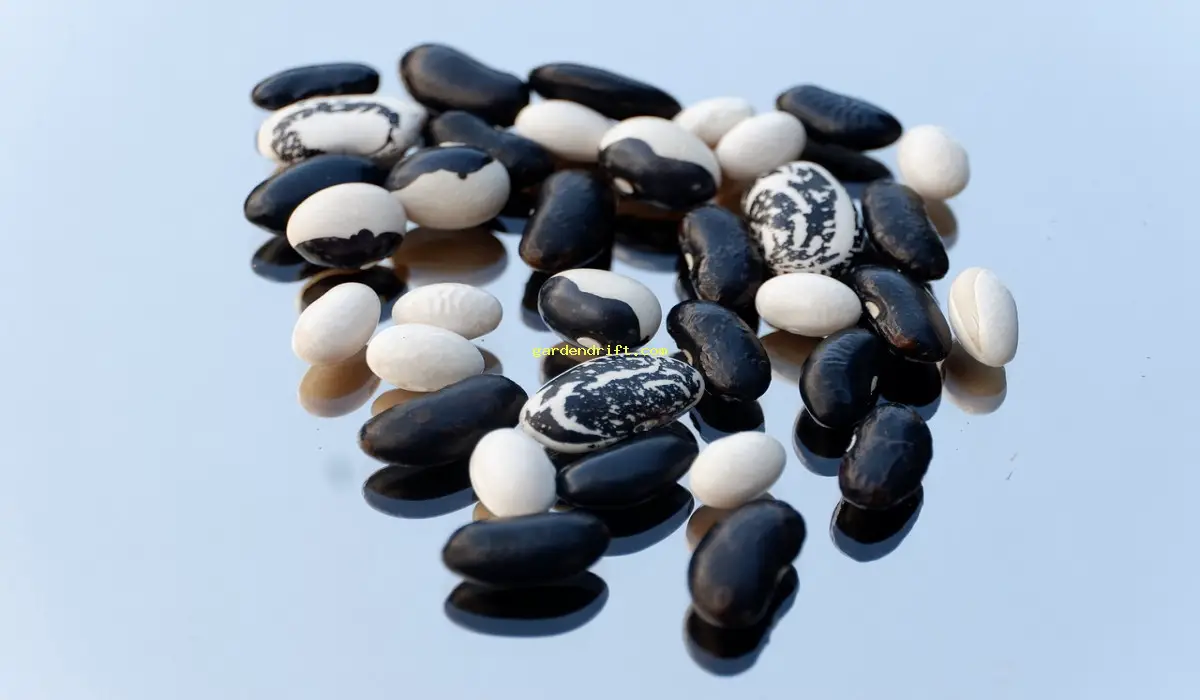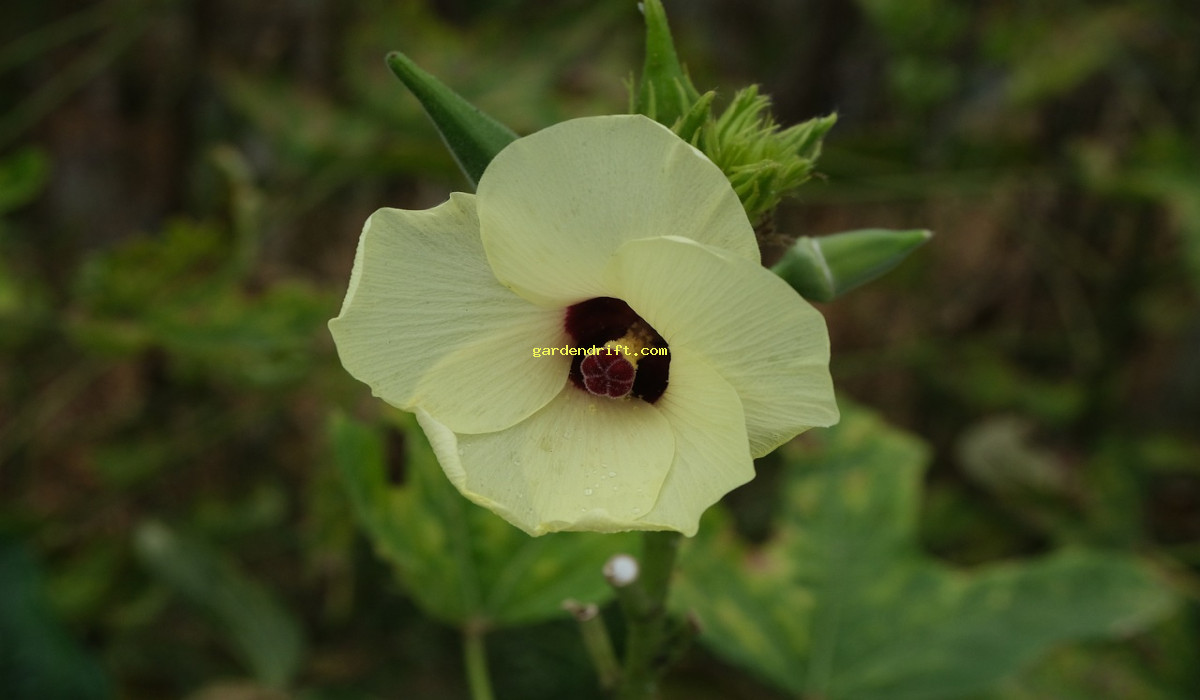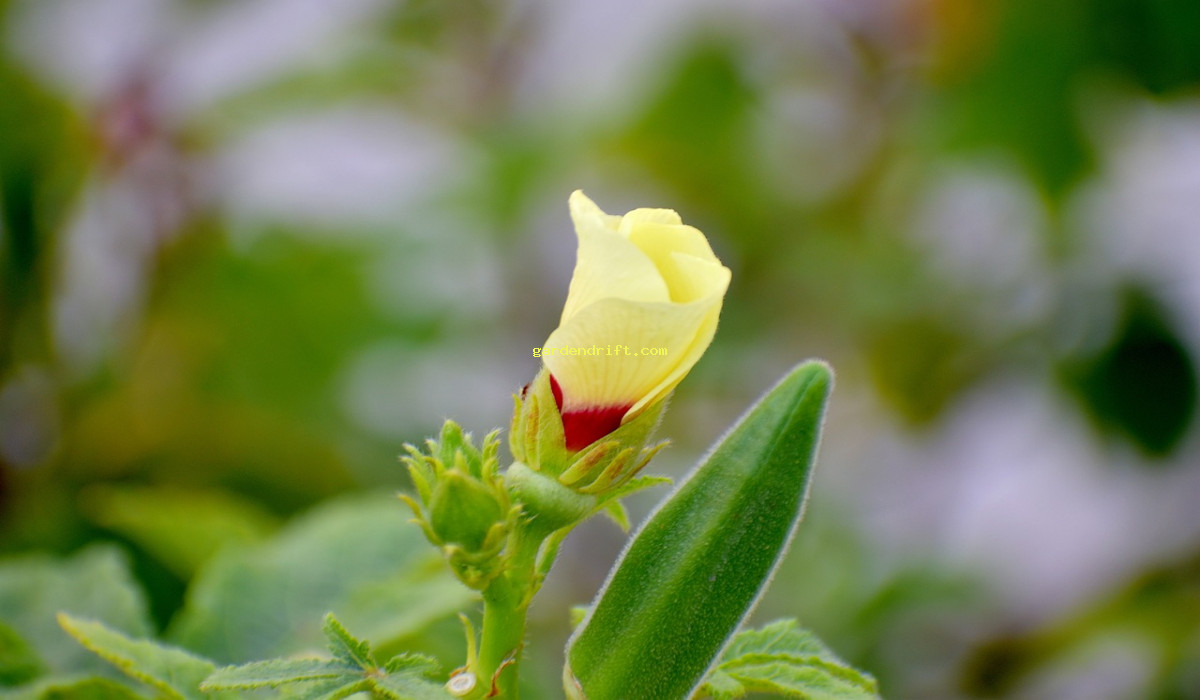5 Plants You Shouldn’t Pair with Okra: Avoid these Companions for a Thriving Garden!. Are you planning on growing okra in your garden but unsure of which plants make the best companions? While okra is a versatile and hardy vegetable, there are certain plants that should not be planted alongside it. Avoid planting okra with tomatoes, melons, and cucumbers as they can attract the same pests and diseases, resulting in stunted growth for both plants. Additionally, avoid planting okra with beans and peas as they can compete for the same nutrients in the soil. Remember to plan your garden layout carefully to ensure your okra plants thrive and produce a bountiful harvest.
5 Plants You Shouldn’t Pair with Okra: Avoid these Companions for a Thriving Garden!. can attract the 5 Plants You Shouldn’t Pair with Okra: Avoid these Companions for a Thriving Garden!
5 Plants You Shouldn’t Pair with Okra
Bad Companion Plants for Okra
Okra, also known as ladyfingers, is a popular vegetable grown in many home gardens and used in various Southern dishes. While it is easy to grow and relatively low maintenance, there are some plants that should not be grown as companions to okra. Companion planting is the practice of growing certain plants together to benefit each other and improve overall plant health. However,5 Plants You Shouldn’t Pair with Okra some plants can actually harm okra and hinder its growth. In this blog post, 5 Plants You Shouldn’t Pair with Okra we will discuss some bad companion plants for okra and why they should be avoided.
Understanding Companion Planting
Companion planting is based on the concept of symbiotic relationships between plants. Some plants can release certain chemicals into the soil that can deter pests, while others can attract beneficial insects. Additionally, 5 Plants You Shouldn’t Pair with Okra certain plants may have deep roots that can help loosen the soil, making it easier for plants with shallower roots to access water and nutrients. While companion planting can be beneficial for many plants, it is important to know which plants should not be grown together. Let’s take a look at some bad companion plants for okra. 5 Plants You Shouldn’t Pair with Okra
Sunflowers
Sunflowers are known for their bright, vibrant flowers, but when it comes to growing them with okra, it’s best to keep them separate. Sunflowers are heavy feeders and can deplete the soil of important nutrients, which are needed for okra to thrive. Additionally, 5 Plants You Shouldn’t Pair with Okra sunflowers can also attract pests such as aphids and whiteflies, which can damage okra plants. If you do want to grow sunflowers, make sure to keep them at a distance from your okra plants.
Irish Potatoes
While potatoes can make a great companion for some vegetables, they should be kept away from okra. Potatoes are also heavy feeders and can take up a lot of nutrients from the soil, leaving little for the okra to grow. Additionally,5 Plants You Shouldn’t Pair with Okra potatoes can also release a chemical that can inhibit the growth of okra. Keep your potato crop separate from your okra plants to ensure they both thrive.
Eggplants
Eggplants, also known as aubergines, are another plant to avoid growing with okra. Both plants are prone to pests and diseases, and growing them together can increase the risk. Okra is also a heavy feeder and can compete with eggplants for nutrients, ultimately hindering the growth of both plants. It’s best to grow these two plants separately to avoid any issues.
Beans
Beans, such as green beans or lima beans, are not good companion plants for okra. Beans are legumes that can fixate nitrogen into the soil, which can be beneficial for some plants. However, okra does not require as much nitrogen as beans and can suffer from nutrient overload, resulting in stunted growth. Additionally,5 Plants You Shouldn’t Pair with Okra beans can also attract bean beetles, which can feed on okra leaves and stunt its growth.

Radishes
Radishes may seem like a harmless and beneficial companion for any plant, but they can actually be harmful to okra. Radishes are known for deterring pests and improving soil quality, but they also have a strong scent that can attract certain pests such as root maggots. These pests can damage the roots of okra plants and reduce their yield. Keep radishes away from your okra crop to avoid any potential issues.
Melons
Melons, such as watermelon and cantaloupe, are another plant that can be harmful to okra. Similar to sunflowers, 5 Plants You Shouldn’t Pair with Okra melons are heavy feeders and can take up a lot of nutrients from the soil. Okra, on the other hand, has shallow roots and needs a steady supply of nutrients to grow and produce a good crop. Growing melons with okra can result in undernourished plants and lower yields for both crops.
Peppers
Peppers, whether they are hot or sweet, are not good companions for okra. Peppers have shallow roots and compete with okra for water and nutrients. Additionally, peppers are prone to a disease called phytophthora, which can also affect okra plants. Keep these two plants separate to ensure they both have enough space and resources to grow successfully.
Corn
Corn is another bad companion for okra, mainly due to its height. Corn can cast a large shadow and block the sun, which okra needs plenty of to thrive. Additionally, corn is also a heavy feeder and can deplete the soil of nutrients. Okra planted near corn may not receive enough sunlight or nutrients to grow properly, resulting in stunted and unhealthy plants.
Conclusion
In conclusion, there are several plants that should not be grown as companions to okra. These plants can cause nutrient depletion, attract pests, or inhibit growth, resulting in reduced yields and unhealthy plants. While companion planting can be beneficial, it is important to know which plants should not be grown together to ensure successful and healthy crops. Do your research and plan your garden accordingly to avoid any issues with bad companion plants for okra. Happy gardening!5 Plants You Shouldn’t Pair with Okra,

Are you planning on growing okra in your garden but unsure of which plants make the best companions? 5 Plants You Shouldn’t Pair with Okra While okra is a versatile and hardy vegetable, there are certain plants that should not be planted alongside it. Avoid planting okra with tomatoes, melons, and cucumbers as they can attract the same pests and diseases, resulting in stunted growth for both plants. Additionally, 5 Plants You Shouldn’t Pair with Okra avoid planting okra with beans and peas as they can compete for the same nutrients in the soil. Remember to plan your garden layout carefully to ensure your okra plants thrive and produce a bountiful harvest.. Regards
Companion plants for okra: bad 5 Plants You Shouldn’t Pair with Okra: Avoid these Companions for a Thriving Garden!
What are some bad companion plants for okra?
According to Google’s People Also Asked, some plants that do not pair well with okra include mint, peppers, and pole beans. Mint is known to spread quickly, potentially crowding out okra plants. Peppers and pole beans compete with okra for sunlight and nutrients, resulting in stunted growth for all plants involved.

Can tomatoes be planted next to okra?
No, tomatoes should not be planted next to okra. This is because both plants require high levels of nitrogen, which can lead to a competition for nutrients in the soil. As a result, both plants may suffer from stunted growth and lower yields.
Why should I avoid planting okra near potatoes?
Okra and potatoes are not good companion plants because they are both susceptible to root knot nematode infestations. By planting them near each other, the nematodes can easily transfer from one plant to the other and cause damage. It is best to keep these two plants far apart in the garden.
